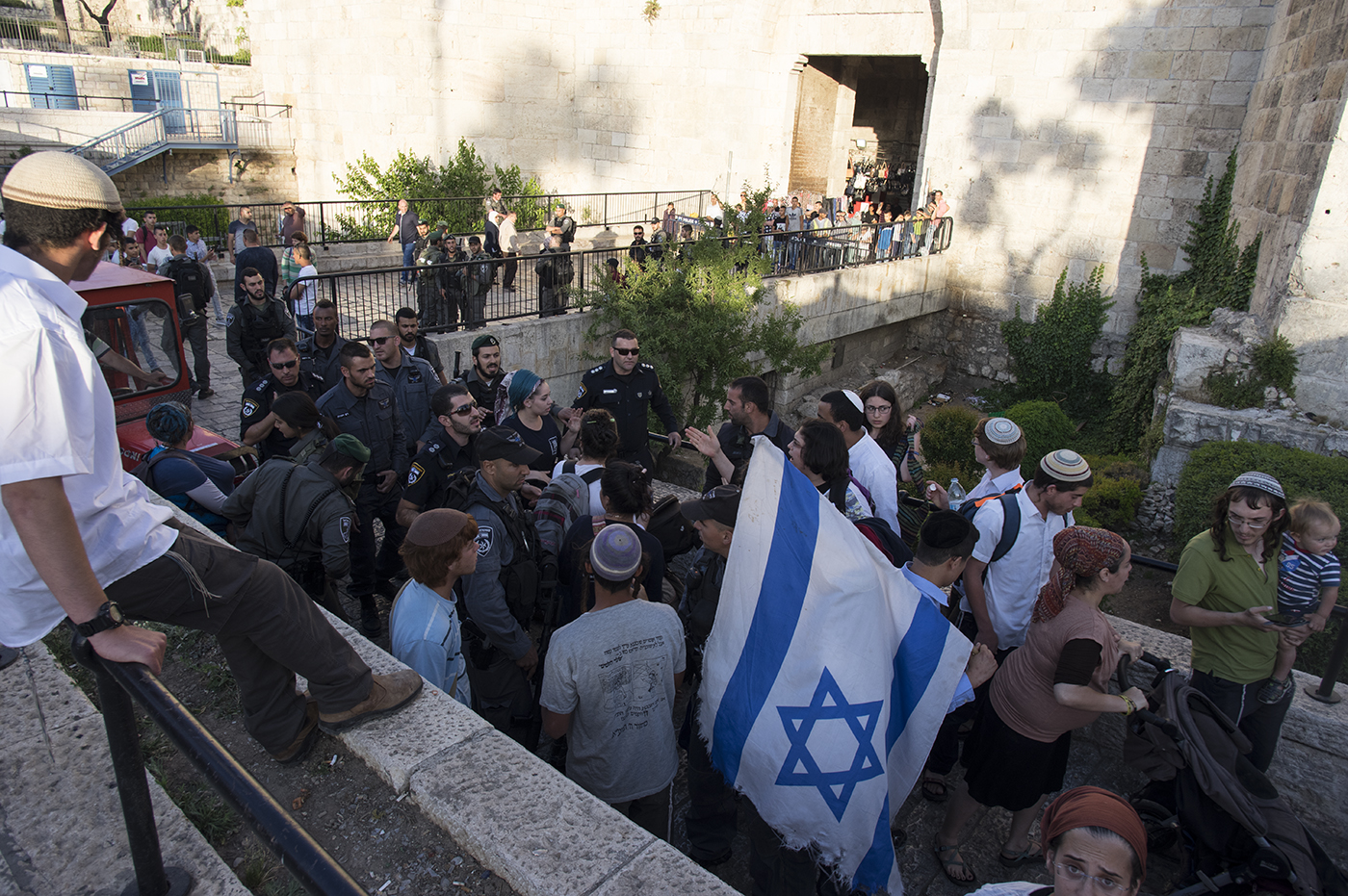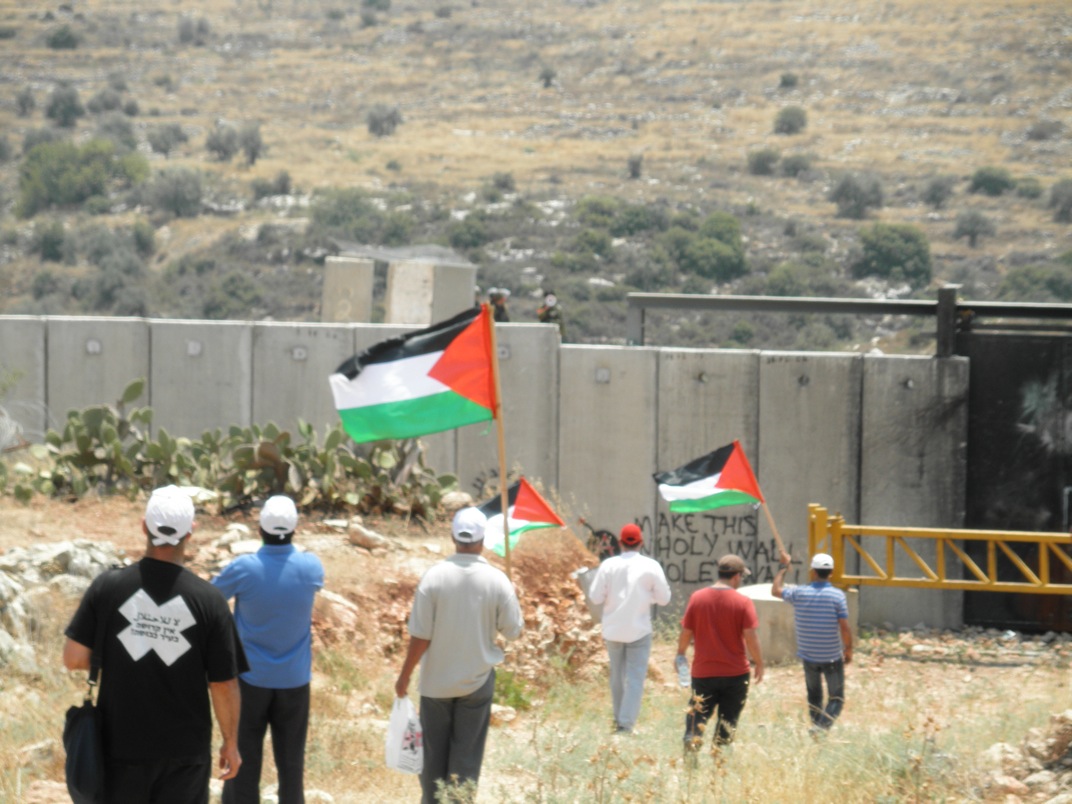Tag: Collective punishment
-
Hebron under selective and racist siege
2nd July 2016 | International Solidarity Movement, al-Khalil team | Hebron, occupied Palestine The southern West Bank city of occupied al-Khalil (Hebron) has been put under siege by Israeli forces – exclusively for Palestinians. Israeli forces declared a complete closure of the city as a ‘security measure’, closing all entries and exits into the city…
-
Curfew on Hebron neighborhoods imposed by Israeli forces
2nd July 2016 | International Solidarity Movement, al-Khalil team | Hebron, occupied Palestine Israeli forces, on 30th June 2016 enforced a complete curfew on several neighborhoods in occupied al-Khalil (Hebron). Deliberately, this curfew was designed to be imposed only on the Palestinian population, with the expressive goal of allowing settlers to move around these neighborhoods…
-
Violent night raid in Ni’lin leaves 7-days old baby suffering from tear gas inhalation
3rd May 2016 | International Solidarity Movement, al-Khalil Team | Ni’lin, occupied Palestine During nighttime on the 1st of May, Israeli Forces raided the village of Ni’lin in the West Bank in occupied Palestine without any reason. First, with the arrival of one military jeep, villagers were already aguishly awaiting why the Israeli army is…



